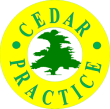Are you a Carer?
Are you providing care to someone who needs help with day-to-day living because of illness or disability? If you are, please let us know – we may be able to help you.
There is a wealth of information on the NHS website about carers and caring for others. Below are some links into the site that we hope you will find useful.
Carer’s assessments
If you care for someone, you can have an assessment to see what might help make your life easier. This is called a carer’s assessment.
It might recommend things like:
- someone to take over caring so you can take a break
- gym membership and exercise classes to relieve stress
- help with taxi fares if you don’t drive
- help with gardening and housework
- training how to lift safely
- putting you in touch with local support groups so you have people to talk to
- advice about benefits for carers
A carer’s assessment is free and anyone over 18 can ask for one.
Carers’ breaks and respite care
Respite care means taking a break from caring, while the person you care for is looked after by someone else.
It lets you take time out to look after yourself and helps stop you becoming exhausted and run down.
There are lots of respite care options. Your local council or local carers’ centre can give you information about local support.
Benefits for carers
You might not think of yourself as a carer. But you probably are if you’re looking after someone regularly, including your spouse or a family member, because they’re ill or disabled.
As a carer, you may be entitled to one or more state benefits to help you with the costs.
Being a young carer: your rights
You’re a young carer if you’re under 18 and help to look after a relative with a disability, illness, mental health condition, or drug or alcohol problem.
If someone in your family needs to be looked after, you may really want to help them. But as a young carer, you shouldn’t be doing the same things as adult carers.
If you or your parents request it, a social worker from your local council must visit to carry out a young carer’s assessment.
Help for young carers
If you’re a young carer, friends and relatives are often the first people to turn to for help with problems. Talking things through with them can be really helpful.
If you find it hard to talk to others, try to write your thoughts in a diary, poem or letter first. This can help to make sense of your thoughts and how you feel, before getting help.
Local Help
Unpaid carers aged 18 and over
If you’re an unpaid carer, aged 18 and over, supporting someone in Hackney, you can register with Carers First. They can provide online help and advice, as well as 1-2-1 practical and emotional support.
Young carers aged 6-19
Young Hackney: Young Carers is a service which works with the young carer to create a personalised plan, which could include:
- Opportunities to take part in fun, free activities
- Trips exclusively for you and other young carers (designed by Young Carers)
- Spaces to meet and connect with other young carers
- Dedicated one-to-one support with a Young Hackney worker
- Support groups in school to allow you to get the most out of your education
- Advocacy in knowing your rights





